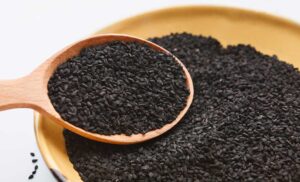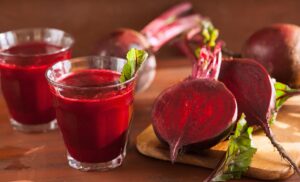
In the beginning, the earth was blessed with rich, fertile soil and lush vegetation. The soil was teaming with microbes — bacteria, fungi, and protozoa, to name a few. In the perfect cycle of life, microbes in the soil break down dead plant material and create substances and nutrients that nourish plants. When humans eat these plants, we enjoy the nutrients that they provide. The microbes in the soil make the hidden treasure called fulvic acid, the miracle of life. Fulvic acid is not a vitamin or a mineral and science cannot synthesize this substance in a laboratory. Our bodies require it for optimal health, but, we no longer get fulvic acid in adequate amounts from our food.
Fulvic acid (FA), also known as Shilajit, has been used for 3,000 years. Fulvic acid has been reported to rejuvenate health and bring a multitude of benefits that are unmatched by any other natural substance.
Benefits
Fulvic acids can be found in compost or peat, lignite (brown coal which gives inferior fulvic acid) or ancient humic deposits that come from deep within the earth. Unlike other deposits formed over time deep below the earth’s surface, like coal, oil and natural gas, humic deposits are safe, providing powerful compounds that provide an impressive number of benefits for plants, humans and animals.
- enhances the body’s absorption of vitamins and minerals
- anti-inflammatory effects
- anti-allergy
- improves many aspects of eczema
- speeds skin healing
- enhances healing of wounds infected with drug-resistant pathogen
- protects against free radical damage as an antioxidant
- anti-aging benefits
- improves gut flora and gut health
- anti-diarrheal effects in animals and humans
- improves energy levels
- reduces oxidative stress
- useful in treatment of osteoarthritis patients
- shows antiviral activity, interfering with a virus’ ability to attach to a host cell, penetrate the host cell, and reproduce itself
- displays antimicrobial activity
- displays antifungal activity
- effective for the management of oral biofilm infections
- anti-aging effect on the skin, increasing fibroblast viability and reducing collagen degradation
- neuroprotective, improves memory and brain function
- supports the immune system
- stimulates metabolism
- cleanses toxins and heavy metals from the body
- shows immunomodulatory activity
- modulates homocysteine and pro-inflammatory mediators linked to atherosclerosis
- promotes ulcer healing
Science cannot create fulvic acid. Fulvic acid cannot be made by man because it involves photosynthesis and humification. The process that creates fulvic acid requires nature’s recyclers, microorganisms, working in fertile, rich soil over a long period of time. Microbes decompose organic material (manure, compost, decaying plant material), in the soil to create nutrients for the plant including trace minerals, carbon, hydrogen, oxygen, nitrogen, phosphorus, and potassium. Microbes make the minerals in the soil into a useful form for plants and over time the microbes help create an amazing substance called humus .
Over the past 50 to 100 years, farming practices that sustained humans for thousands of years have drastically changed. Chemical fertilizers, herbicides and pesticides were created to increase crop yield, kill insects and control weeds. Modern agricultural practices increase the amount of food produced but the toll this has taken on soil microbes, plant nutrients and human and animal health is underappreciated. While attempting to kill the pests and weeds and bolster plant production, the chemicals used in agriculture have inadvertently attacked friendly troops in the soil jungle. The price of growing food this way is dramatically altering the natural recycling process required in nature, and the downstream effects on human health are mounting.
Fulvic acid and humic acid are the key substances found in humus, the end result of the humification process where microbes in the soil break down once living matter, usually plants. It is believed that most of the health benefits attributed to Fulvic (Shilajit) and humic substances are primarily due to the presence of fulvic acid.
Fulvic acid may seem like “just another nutrient” that is declining in food, but it is actually the most important health-building compound because it is nature’s intended vehicle for transporting minerals and other nutrients into living cells. Fulvic acid is nature’s answer to depleted food and too many toxins.
“Essentially, All Life Depends Upon The Soil … There Can Be No Life Without Soil And No Soil Without Life”
“LET US BE YOUR DOORWAY TO HEALTH”


